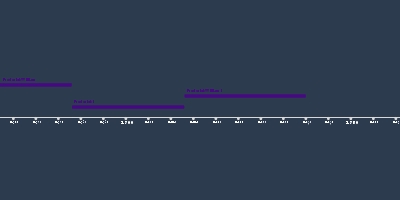American Revolution (1 jan 1765 ano – 1 jan 1791 ano)
Descrição:
To pay for the finances of the Seven Years War that doubled national debt and to defend the half billion acres gained in the Treaty of Paris, Britain broke the tradition of loose colonial oversight to tax the colonies directly. This sparked a revolution that cost Britain the colonies. France, who supported the colonists, exited the war with little benefit. Their debt only worsened, but the American Revolution was one of the inspirations for the French Revolution.Britain first passed the Stamp Act, taxing a variety of printed paper goods, but repealed it due to rioting and boycotting. They then established the Proclamation Line, which limited western movement, to prevent further conflict with Native tribes.
British colonial administration came to be seen as a threat to American liberties, partly because Americans had more independence. In the colonies there was no established church, colonial assemblies made laws, and more males could vote. The colonies also had greater social and economic equality.
Britain then enacted the Tea Act, permitting the East India Company to ship tea directly to the colonies. The company secured a monopoly and colonial merchants were excluded, resulting in protesting because of its impact on local merchants (even though it lowered the price of tea). When Boston men threw crates of tea into the harbor in the Boston Tea Party, Britain passed the Coercive Acts of 1774. It closed the port of Boston, curtailed local elections, and expanded the royal governor’s power. Resentment grew, and the colonial delegation called the First Continental Congress met. More radical members successfully argued against concessions, and Parliament did to, and in 1775, fighting started at Lexington and Concord.
Public opinion was mobilized in favor for independence by the likes of Thomas Paine’s pamphlet Common Sense. The Second Continental Congress adopted the Declaration of Independence. It condemned George III and proclaimed the natural rights of mankind and the sovereignty of the American states. Conflict arose between patriots and Loyalists, who were loyal to the Crown. Many fled after they were harassed and their property confiscated by a coalition of farmers and artisans with support by wealthy patriots.
Partially to seek revenge on Britain, the French aided Americans. Lafayette became one Washington’s most trusted allies, and they offered a formal alliance. The Spanish and Dutch declared war on Britain, and Catherine the Great organized the League of Armed Neutrality to protect neutral shipping rights and succeeded in hampering Britain’s naval power.
Facing war in most of Europe and in the thirteen colonies, the British signed a treaty with Americans who purposely excluded the French. The 1783 Treaty of Paris recognized American independence and ceded its American territory.
Adicionado na linha do tempo:
Data:
1 jan 1765 ano
1 jan 1791 ano
~ 26 years
